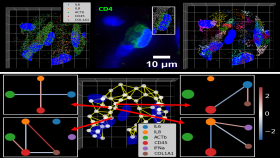Celltrion signed an “incubation” agreement with Emory University to jointly research and develop new drug candidates for atherosclerosis. An incubation agreement is an open innovation arrangement in which a firm provides its resources and business capabilities, such as research facilities, workforce and operations consulting, to an external research institute. The arrangement aims to ensure the autonomy of the research while obtaining preferential rights to discuss commercializing the research output.
Under the agreement, Celltrion will share its accumulated biologics development expertise with the Emory University School of Medicine and the Wallace H. Coulter Department of Biomedical Engineering at Emory University and Georgia Tech, and provide research costs and manufacturing materials of new drug candidates for atherosclerosis. Celltrion will have a preferential right to acquire a license for inventions resulting from the agreement.
Atherosclerosis is a vascular disease, in which the blood vessels are narrowed or clogged due to plaque made up of fat, cholesterol, immune cells and vascular wall cells in the blood vessel. This results in ischemic heart diseases, such as myocardial infarction and angina, as well as stroke or peripheral arterial disease. Ischemic heart disease and stroke are the world’s leading causes of death, accounting for a combined 15.2 million deaths worldwide in 2016.
Statins that lower cholesterol and lipid levels in blood are widely used to alleviate the onset and progression of atherosclerosis. Despite the success of lipid lowering drugs, atherosclerotic diseases continue to be a major cause of death worldwide. This highlights the need to develop new drugs that can complement the lipid lowering drugs by targeting new mechanisms of action to prevent and reduce the risk of atherosclerotic diseases, Celltrion said.
“We are delighted to cooperate with the internationally renowned research team at Emory University led by Dr. Hanjoong Jo, John and Jan Portman, Endowed Professor and associate chair in the Coulter Department of Biomedical Engineering and the Division of Cardiology, who is a leader in the area of mechanically regulated genes in atherosclerosis research,” said Celltrion.
Media Contact:
Walter Rich
Communications Manager
Wallace H. Coulter Department of Biomedical Engineering
Georgia Institute of Technology
Media Contact
Walter Rich
Keywords
Latest BME News
Commercialization program in Coulter BME announces project teams who will receive support to get their research to market.
Courses in the Wallace H. Coulter Department of Biomedical Engineering are being reformatted to incorporate AI and machine learning so students are prepared for a data-driven biotech sector.
Influenced by her mother's journey in engineering, Sriya Surapaneni hopes to inspire other young women in the field.
Coulter BME Professor Earns Tenure, Eyes Future of Innovation in Health and Medicine
The grant will fund the development of cutting-edge technology that could detect colorectal cancer through a simple breath test
The surgical support device landed Coulter BME its 4th consecutive win for the College of Engineering competition.
New research from Georgia Tech helps doctors predict how therapies will interact with a child's immune system, potentially improving outcomes and reducing risks.








